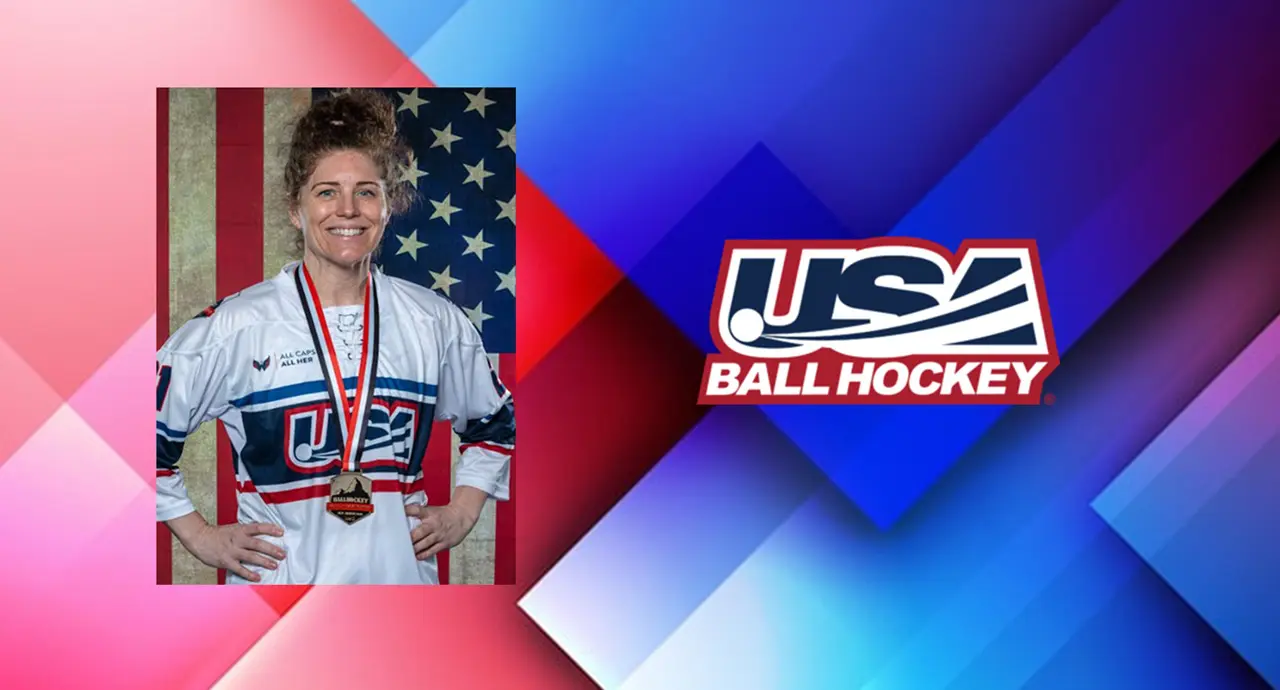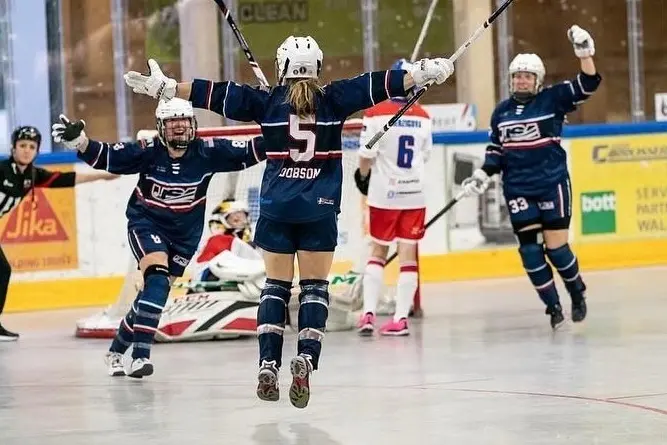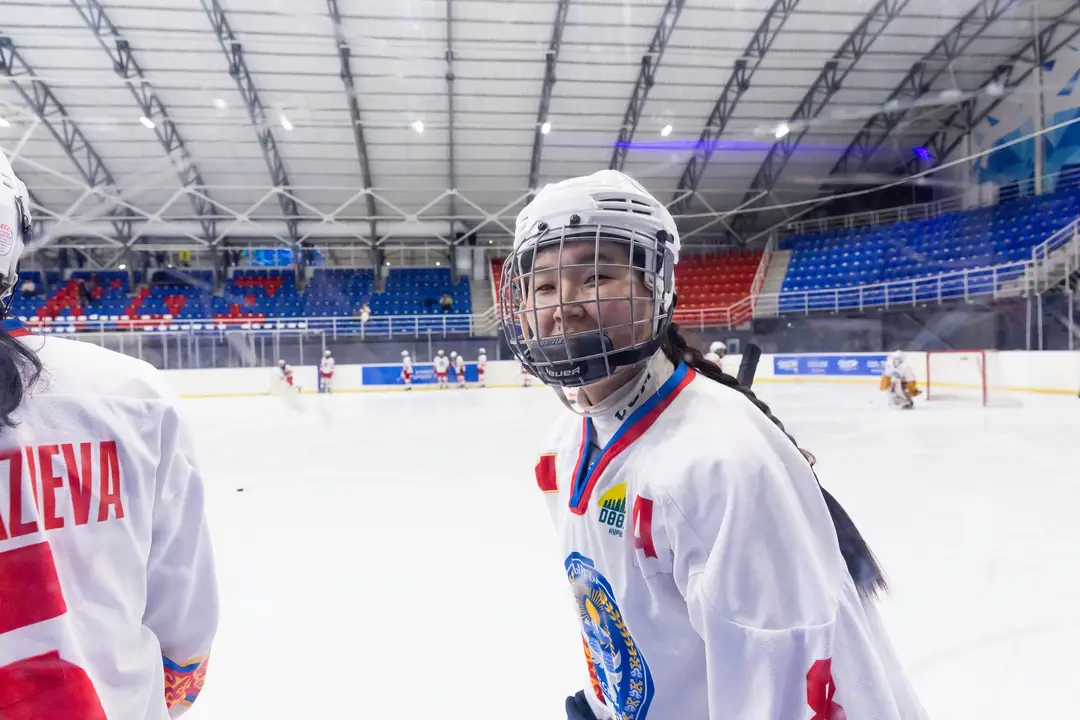As the early 1990s marked the modern day resurgence of women’s ice hockey, Andria Hunter was one of the most underrated superstars of this astonishing era. In a career that has spanned from the NCAA to the CIAU (now known as CIS), from the IIHF to the COWHL and the succeeding NWHL (which would grow to become the CWHL), Andria Hunter was at the pulse of the sport’s importance. Her value to the game is definitely known among the women who helped shatter barriers and change cultural norms.
 Having made her debut for Canada at the 1992 IIHF Women’s Hockey Worlds, it would prove to be a unique turning point in the sport’s history. Although the final score of the games outcomes were relegated to the back pages of many sports sections, the event confirmed that the game had a future.
Having made her debut for Canada at the 1992 IIHF Women’s Hockey Worlds, it would prove to be a unique turning point in the sport’s history. Although the final score of the games outcomes were relegated to the back pages of many sports sections, the event confirmed that the game had a future.
“In ice hockey, it was the gold medal game at my first World Championship in Finland in 1992. I played on a line with Margot Page and Angela James (2010 Hockey Hall of Fame inductee), and I must say that made the game in itself a lot of fun! It seemed that everything came together for us that game, and we ended up winning 8-0 against our arch rivals Team USA. What an unforgettable feeling to see that Canadian flag raised at the end of the game!
A close second in ice hockey was the moment I was told by the coaches at the final national selection camp in Kitchener that I had made Team Canada. I’ll never forget the feeling of overjoy!”
The 1992 event would prove to be a magical time as it featured many women that would leave a remarkable mark on the game. Hunter was part of a remarkable rookie class that featured the likes of 18-year old Nancy Drolet (who would score the gold medal clinching goals at the 1997 and 2000 IIHF Worlds), 26 year-old Danielle Goyette (who would become the first Canadian woman to win Winter Games gold as a player and coach).
Joining them were the likes of with Karen Nystrom, Natalie Rivard and goaltender Manon Rheaume. Of note, Rheaume would close out the year breaking hockey’s gender barrier, competing in an exhibition game at the NHL level, complemented by regular season play in the IHL.
Team USA featured the likes of Cammi Granato and Hunter’s teammate from New Hampshire, Shawna Davidson (who would become the head coach of the United States national women’s ice sledge hockey team two decades later). In addition, Digit Murphy served on Team USA’s coaching staff. A Title IX champion and a strong supporter of equality for women in hockey, Murphy would become the first female coach to win two Clarkson Cup titles.
An even greater accomplishment was the fact the event also marked the official IOC acceptance of women’s hockey as a sport at the Winter Games. Had women’s ice hockey been a demonstration sport at the 1994 Lilliehammer Winter Games (which had been a subject of speculation at the time), there is no question that Hunter would have been among the women selected to don the Maple Leaf.
As a side note, Hunter was one of several Hockey Canada alums that competed between 1990 and 1997 to gain special recognition during the 2013 IIHF Women’s World Hockey Championships. Contested in Ottawa, Ontario, the city that also hosted the inaugural Women’s Worlds in 1990, Hunter was one of many proud alums that were part of a special in-game ceremony during Canada’s game against Finland. All proudly taking a place on the Team Canada bench, to a roar of applause from the fans, it was a special opportunity to introduce a new generation of fans to a group of women whose accomplishments eclipsed sports trivia, creating a sports dynasty.
 While Hunter established herself as a world-class athlete on the ice, it was not the only time that she would don Canada’s colors internationally. Like Geraldine Heaney and Angela James, Hunter would spend the off-seasons making the transition to ball hockey and roller hockey.
While Hunter established herself as a world-class athlete on the ice, it was not the only time that she would don Canada’s colors internationally. Like Geraldine Heaney and Angela James, Hunter would spend the off-seasons making the transition to ball hockey and roller hockey.
It is a trend that continues to this day. Engaging in the dual activity of ice and roller hockey has included the likes of CWHL players such as 2014 Clarkson Cup champion Michelle Bonello, Kendra Fisher (who skated for the Toronto Furies in their inaugural season) and Amanda Parkins. These three talented women would also follow in Hunter’s historic footsteps and claim gold for Canada at the World Inline Championships.
First contested in 2002, the inaugural Women’s Inline Championships represented another championship chapter in Hunter’s sterling career. Having had the chance to be part of the Canadian contingent that participated at the event, it was a remarkable example of the character and team-first approach that made Hunter the world-class competitor that she is,
“In inline hockey, (my favorite moment) was again during the gold medal game against Team USA. This was in 2002 at the first-ever Women’s Inline Hockey World Championship, held in Rochester, NY. About six weeks before the World Championship, I tore my MCL, playing ice hockey with my husband’s team. Fortunately I was still able to play at the inline hockey World Championship albeit with a knee brace.
There was a point in the gold medal game when we were winning 1-0 and Team USA was on a breakaway. I was the closest player back so I knew I had to try to catch her, but with the sore knee I wasn’t sure if it would be possible. I did manage to catch her, and for some reason that moment has stuck with me. I guess because it may have been a turning point if she had scored, and it also shows how we can go beyond our limits if we put our mind to it! We went on to win the game 2-0 to claim the first- ever World Championship!”
Ascending to the gold medal in 2002 was another example of the hard work that women have put into hockey. While both ball hockey and inline hockey may not be as well-known as their-on-ice counterpart, many women have worked tirelessly to build the sport and work towards an opportunity to proudly don the Maple Leaf on their sweater. For Hunter, the announcement of the event represented the opportunity for a golden farewell, the culmination of many years of competing at all levels of the game,
“Another exciting moment in inline hockey was when I first heard the announcement that the first Women’s World Championship would take place in 2002! I had been playing inline hockey since 1994, and up until then the main event was the North American Roller Hockey Championship (NARCh). I was 30 at this point, and I knew I was about to give up playing hockey to start a family, so the timing couldn’t have been better for me!”
There is no question that hockey is a family affair for Hunter. The most recent season has represented a renaissance for the highly accomplished skater. Complemented by a clean bill of health, Hunter is rekindling the magic that made her a revered figure in the game,
“I retired from playing with the Mississauga Ice Bears in the National Women’s Hockey League after the end of the 2001-2002 season. After that, I took 12 years off hockey. Things were just too busy having had 4 children, but the main reason is that I was diagnosed with some pretty severely herniated discs after my first daughter was born in 2003.
 Fortunately, my back is feeling much better now, and I just started playing again in the Mimico Dad’s Hockey League (mdho.weebly.com) this season. I had really missed playing and am so happy to be back on the ice again!”
Fortunately, my back is feeling much better now, and I just started playing again in the Mimico Dad’s Hockey League (mdho.weebly.com) this season. I had really missed playing and am so happy to be back on the ice again!”
Only adding to the jubilation of a glorious comeback was the opportunity to proudly share a special day of hockey with her family. Earlier this year, over 40 teams participated in 3-on-3 tournaments from the tyke to midget levels. Contested in the arena where Hunter played her childhood hockey, not only did her children follow in her legacy by gracing the ice for said tournaments, it was part of a special “Hockey Day in Keene” event.
Afterwards, Hunter had the chance to grace the ice as a scrimmage consisting of various women’s senior team competitors and coaches took place. With 45 seconds left, Hunter logged the game-winning tally in a 6-5 final. It was a fitting conclusion to a memorable day as Hunter’s cousin, Colin Tood (the president of the Otonabee Minor Hockey Association) presented a banner of Hunter to take its rightful place among the arena’s rafters, to commemorate and celebrate her contributions to the game, but providing inspiration for future women’s hockey players.
“All quotes obtained first hand unless otherwise indicated”
Roller hockey photo obtained from: http://www.whockey.com/andria/
Other photos obtained from Facebook
[adrotate group=”1″]
Related Articles
Categories
Recent Posts
[adrotate group=”2″]




